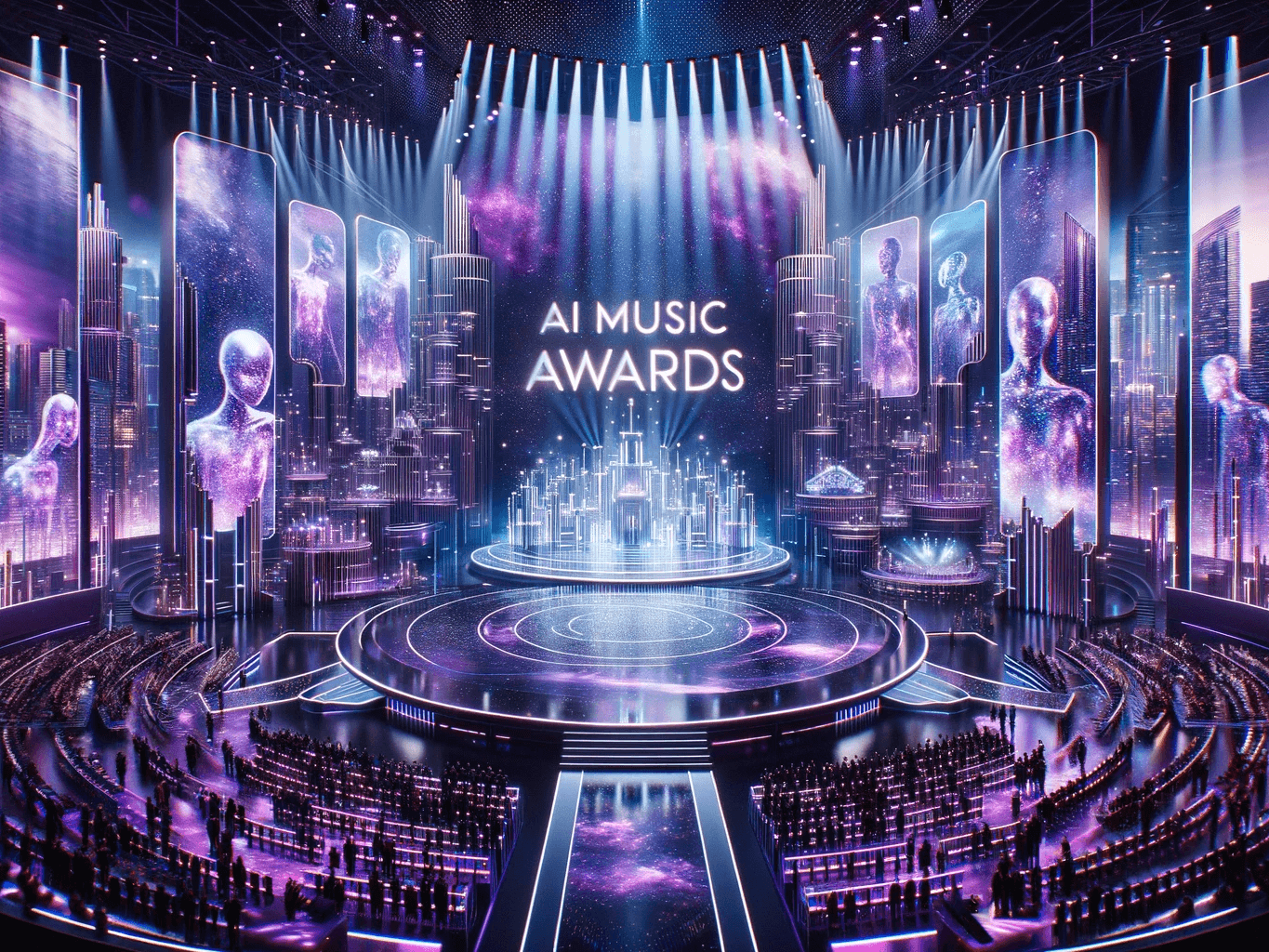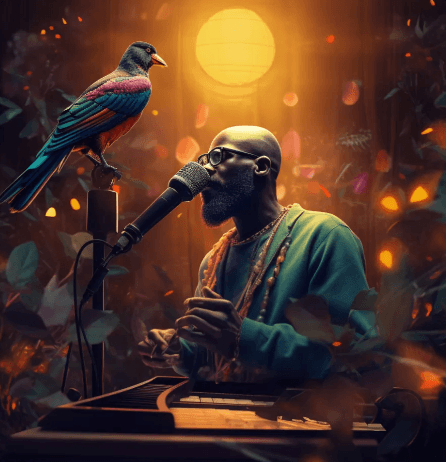Please make no mistake about it: AI is here to stay. Long posited as the sign of a truly futuristic world, fiction has long portrayed AI as both the savior and demon of the future. Whether you believe AI will lead to an uplift in productivity that transforms society or you think it will become something far worse, it cannot be ignored. AI is now a crucial part of life – especially in the creative world, where its usage is becoming increasingly prominent.
For example, AI in the music industry is now a major talking point. Many artists are using AI in various ways to improve their music creation. Others are using it to cut corners and produce content quicker. While there is a happy medium between using AI for its advantages and using it to be lazy, AI music is by no means a fad. It will be a major part of every creative industry, especially music.
So, with that in mind, there has been an interesting development recently: AI music in the charts.
The topic of AI music in the charts is a growing discussion. Musicians are naturally worried that they could soon find their sole means of income replaced by automated creations. Others are worried about their likeness, instrumentals, and vocals all being used by AI tools to create music they earn nothing from. Creatives are naturally concerned that AI might also remove the creativity and unicity of music and the creative industry.
Will AI Music Hit The ‘Real’ Charts?
The most interesting debate around AI music in the charts is that it could theoretically arrive much sooner than we think. For example, musicians are certain that AI-generated music will arrive in the charts within 12-18 months. And by arrive on the charts, we mean towards the top.
While there is a bit of pushback from the music industry to avoid AI music being accepted, the quality is rising so fast. This means that people who operate the big charts like Billboard will likely keep a close eye on what appears. Yet, there is no secret formula to creating a chart-topper. Think of every chart-topping song you remember: how many follow the same formula?
While there are often little ‘tells’ that can explain why a song is popular in the mainstream, there is no set-in-stone option. The highest-ranking songs in the charts can get there for various reasons. It could be that the song was used in an advertisement that goes viral or appears in a TV show everyone watches. Due to the pace and the speed of machine learning, it will not be long before AI music creation tools try to find the ‘hidden gem’ that makes a chart-topping song.
The Copyright Concerns
However, the main concern that exists – for many – is the copyright issue. For example, you might have seen the controversy earlier in 2023 when Drake released a ‘new song.’ Only it was not Drake doing a new song with The Weeknd. It was an AI creation that, to many, sounded good!

The lyrics were a bit iffy, but the actual musical composition and the closeness of the vocalists to the real thing were uncanny. And that was fairly early into the music AI revolution of 2023. However, what could stop AI music from taking over the charts is the protestations of big-name musicians and creatives.
Copyright battles and creative strikes have already been held to ensure that AI music does not become ‘accepted’ by the mainstream. Artists are making it clear how damaging and dangerous this kind of thing could be to their creative ability (and also their income) and want fans to buy in. Copyright issues are being dealt with at present, with many big-name AI tools having to remove the ability to use vocals created using the voices of real musicians.
What is left are AI-generated voices that sound slightly like the accessibility tools in Microsoft Windows. They sound fake, tinny, and robotic. They lack the human appeal of a real vocalist. However, it does not take a great imagination to see that not all AI-created music will include vocals.
Think of how many big tracks in your life have made it in the charts while being entirely instrumental. Many DJs have made a living doing just that – preceding vocals for their most prominent tracks. If so, why can’t AI create chart-topping music so long as it avoids using a ‘real’ vocalist?
The Emergence Of AI Music Charts
For those who believe the above is unlikely ever to take place, there is the rise of the ‘AI charts’. AI charts are becoming increasingly popular. Given the quality of some AI music, it is not a stretch of the imagination to see these charts becoming prominent. After all, while a lot of AI music is not up to scratch, some of it is pretty good!
In the last couple of months, AI chart music platforms have now emerged, incluidng AITOP40and AIHITS. People want to see what AI is capable of creating. Just like people were keen to use text-based tools like ChatGPT to see what boundaries they could push, AI is now doing the same in music.

While there are naturally issues that revolve around topics like copyright and fair usage, as well as how AI music is generated in the first place, there has been a pretty rapid improvement in the quality.
AI Music On Streaming Services
Another interesting aspect of determining AI music in the charts is streaming services.
Interestingly, one platform that already boasts a huge catalogue of AI-created music is Anghami. Agnhami is a MENA-oriented music streaming platform that is massive in the East. It is growing all the time, and one of the reasons it is growing is because it focuses on different kinds of music. The platform recently boasted that it would be the first to offer as many as 200,000 AI-generated songs!

There is also the specifically developed Musixy.ai platform that is set to arrive in the future. This will offer an AI-only streaming platform. The hope for many using AI tools is that platforms like this will eventually lead to acceptance on platforms like Spotify. It has already been clarified that Spotify will not contribute to a blanket ban on AI music and they have even released an AI DJ. I have also learned through my conversations with music industry professionals, that there is some fear that they will end up paying excessive amounts of royalties to musicians who put little effort into their creative works. We are already seeing instances of ‘AI-powered spam’ on streaming platforms.
While streaming platforms will judiciously remove any copyright-infringing music uploaded, that has more or less always been the case. How will Spotify and the like deal with music – particularly instrumental music – that is not developed in a studio but on an AI tool?
Many are already wondering if there will be streaming services that can make an income by having people listen to only AI music. The challenge with some AI platforms is that they will allow for ‘requests’ to be created, whereby users can essentially have riffs and faux covers created of chart music. That in itself enters into legally dubious territory.
What Does The Future Of AI music in the charts Hold?
There is excitement and trepidation in equal measure within the music industry. Those keen to see AI become a more prominent part of daily life see this as highly exciting. Others who might have great musical ideas but lack musical skill might see AI-generated music as a chance to get in on the industry. For example, Musixy.ai will offer a composition led by a producer and musicians for 290€. This means that someone with an idea could have their music created by others.
Given the quality of the Drake-The Weeknd AI collaboration and other covers created – such as the “Lost” album by UK musical giants Oasis – it is clear that AI music can cut it with the real thing in many ways. What AI can likely never produce, though, is the unique innovations musicians come up with.
Before long, though, do not be surprised to see AI music in the Billboard charts. The pace of development is too great for it to be held back forever.

Dr. Jeffrey Lupker - Co-founder, Staccato
International Speaker & Published Author on Deep Learning & Music.
Dr. Lupker has published peer-reviewed journal articles and book chapters and has given lectures internationally in the fields of deep learning, machine learning and music. Beyond Staccato and his own research, Dr. Lupker is an active performer on guitar and keyboards and has played across Canada and USA with award winning artists.


